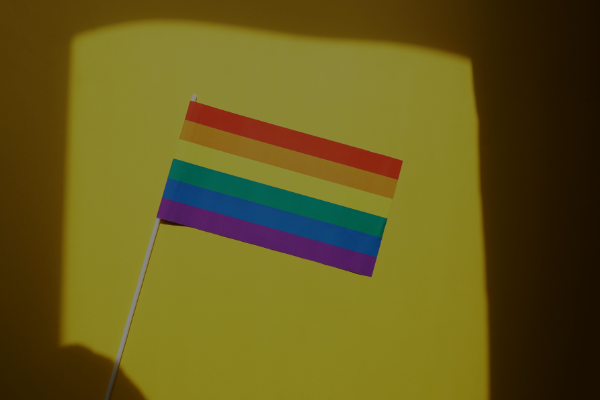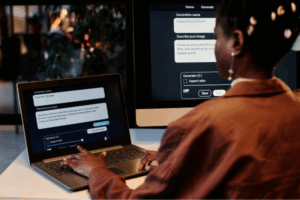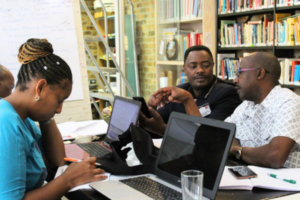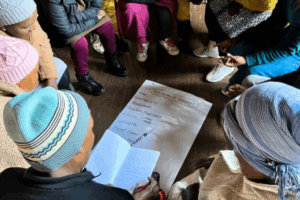Discrimination and violence against people of diverse sexual orientation and gender identity is a serious problem around the world, and South Africa is not immune despite our progressive laws. Lesbian, gay, bisexual and transgender (LGBT) workers face discrimination in the labour market throughout their employment cycle. Some common challenges for LGBT workers include:
- Limited access to employment, refusal of employment, dismissals, or denial of training opportunities and promotions, and access to social security
- Evidence of a pay gap between LGBT and non-LGBT workers – same-sex partners rarely enjoy the same benefits as married couples
- Limited avenues for workplace dispute resolution around harassment and bullying
- Animosity from co-workers and supervisors, e.g. name-calling, and physical and sexual violence
It’s difficult for LGBT workers to find information on laws and policies that protect them against discrimination in the labour market and the workplace. Many LGBT workers are unaware or misinformed about their rights or the procedures to follow when those rights have been violated. Trade unions and employers aren’t better off- often they lack key information and are confused about how to address LGBT workplace rights issues. This is due to the lack of clear policies or guidelines and the shortage of human and financial resources.
Key concerns for LGBT people in the workplace
Stereotypes
The LGBT workers we interviewed spoke about the stereotypes they encounter in relation to their gender identity.
Nomsa (Focus group interviews)"After they hear that you are gay, they assume all gay people are sex pests and some people make outrageous claims. This affects how your colleagues relate to you. I decided to challenge this discrimination and pushed management to allow me to educate everyone on LGBT rights."
Dumelang (Focus group interviews)"We had our annual awards and my team met to discuss sleeping arrangements at the venue. My manager said: 'Dumelang, I imagine that you would be comfortable in your own room…' We all knew what the manager was referring to, but we did not discuss it."
One of the recurring themes that emerged was that the onus is often on LGBT individuals to effect change, given the heterosexist workplace cultures and lack of affirming policy implementation and strong leadership in relation to LGBT rights.
Gender policing
Dress code, along with freedom in relation to workplace attire that affirmed the LGBT worker’s identity, was a key factor in participants’ sense of belonging, safety and inclusion in the workplace. Participants shared numerous examples of clothes and appearance particularly those affirming an alternative gender being used to alienate and marginalize LGBT workers in the workplace to the point of dismissal.
Vavi (Focus group interviews)“It’s embedded in this idea of how to be professional. It’s in the tiny things: when you’re presenting don’t use so many hand movements. From my personal experience, I’ve always felt the need to "fem up" when I’m being formal."
Stereotyping and negative responses to gender non-conformity were prevalent across work sectors. This bias detrimentally affected participants’ ability to get on with the job. The gender expression and attire of one participant in the study in the telecommunications sector drew a negative response from clients.
Regoma (Focus group interviews)"It was difficult trying to sell the company's services to people on the streets. People would tell me to go and change myself first and then speak to them about changing their network. How can my relationships have anything to do with me convincing someone to change their service provider?"
Vavi, (Focus group interviews)"People utter slurs. It becomes so accepted that it doesn’t feel like it's a personal attack just because it's not done in the 'angry’ attack way."
Pelisiwe, (Focus group interviews)"When a man approaches me he wants to have sex with me so that he can give me a job. You are insulting me and destroying my life because I didn't choose to live like this. I feel suicidal, naked, lost and empty."
Even when the LGBT individual’s safety is compromised in the workplace, there’s often little clarity on the procedures involved in reporting harassment or violence. When a complaint is lodged, this may also have negative repercussions for the complainant in terms of unresolved tensions in the workplace.
Pelisiwe, (Focus group interviews)"I go to human resources and lay a complaint. He [the perpetrator] gets a warning, but there’s tension. There will be tension based on which side people take. Someone might not be openly homophobic, but they might support the idea of homophobia. You don’t feel like this is a safe place."
Coming out
The method used by the employers constitutes a slow process of undermining the LGBT employee by picking up on countless small things around which to develop a case. Participants felt that employers were generally aware that direct discrimination could get them in trouble and instead employed subtle ways of removing an LGBT employee.
Matti, (Focus group interviews)"I got dismissed at work for the smallest things, not because I was gay. She got rid of me by collecting all the smallest things like coming to work late."
Dumelang, (Focus group interviews)"One time I went for a hearing and the bosses said it was ‘just a performance review’. I told them straight up that I am not a fool, that I knew they were building up a case to get rid of me. Sexuality is a big deal at the workplace."
Workplaces experiences of transgender people
The lack of possibility for legal representation at the CCMA in specific instances has particular implications for transgender workers.
Dumelang, (Focus group interviews)"A CCMA case concerned an employee who was dismissed and asked to reapply for the position. The employer claimed the change from female to male messed up with the company’s Black Economic Empowerment accreditation. Unfortunately, legal representation at a particular level at CCMA is not permitted. A lot of people tend to be fearful that even if they use such processes they'll still face discrimination." - Busi, Gender Dynamix
Rule 25 of the CCMA rules provide that in an arbitration hearing a party may appear in person or be represented by a legal practitioner, a director or fellow employee, office-bearer or official of the party’s registered trade union or registered employer’s organisation. If the dispute being arbitrated is about the fairness of a dismissal, however, and a party has alleged that the reason for the dismissal relates to the employee’s conduct or capacity, legal representation is not automatic. Legal practitioners are only allowed in the proceedings if the commissioner and all other parties consent; or the commissioner concludes that it is unreasonable to expect a party to deal with the dispute without a legal representative.
Cammy, (Focus group interviews)""The CCMA is probably quite progressive, but how do you prepare for the hearing if you don’t know a Commissioner’s level of transphobia and homophobia? You want to be equipped and have a lawyer, but the process of getting a lawyer who isn’t transphobic can be psychologically draining. Also, I don't think there's enough supporting consultation on how legal processes work. It’s a truly frightening experience because you already have that ‘outside infringed person’ type of mentality which, even if you didn’t think you had at the beginning of your transition, you do later."
Good practice workplaces
Discrimination in access to social protection
Collective bargaining and LGBT rights
Collective agreements in South Africa are mostly concerned with wage settlements. Trade unions attempt to negotiate for wages and conditions of service that meet the minimum criteria set in the BCEA. Few agreements include measures to address discrimination. Collective bargaining agreements across private and public sectors don’t make any specific mention of discrimination against LGBT workers.
Trade unions
The government
The role of the government was flagged repeatedly by participants as central to forwarding an LGBT workplace rights agenda in preventing discrimination and violence against sexual and gender minorities, and in providing monitoring functions in relation to homophobia and transphobia in the workplace. Examples given by participants included the Department of Labour’s Labour Inspectorate and the CCMA.
Recommendations
Change laws, policies and practices
Given the gaps and weaknesses in existing policy and practice, there is an urgent need to address gaps in existing legislative and policy frameworks relating to LGBT rights. The two focus areas are: first, on broad strategies such as education and raising awareness, which would in turn influence policy; and, second, on the specific issues that need to be addressed in workplaces.
More education and training
Given the clear lack of information among all stakeholders in relation to LGBT issues, there is an urgent need for training and further information for a wide range of stakeholders on LGBT workplace rights. This would include different educational interventions, ranging from broad dialogues, diversity workshops, to work on mainstreaming LGBT issues in existing programmes.
Leadership development
Findings from the study indicate a clear openness towards LGBT workplace rights. However, the lack of leadership in furthering LGBT workplace rights in South Africa is evident. There is a need for programmes to develop an awareness of LGBT issues and foster leadership in this area and across all sectors, either among LGBT people themselves or their allies.
Submission of an LGBT policy to NEDLAC by the ILO
Given the key role of the National Economic Development and Labour Council (NEDLAC) in terms of furthering LGBT workplace rights, the ILO ought to submit an LGBT policy for discussion by NEDLAC.







